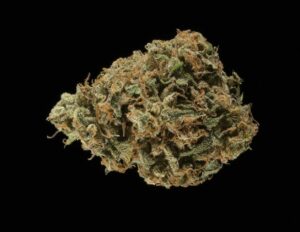Recently, I attended a drug-awareness education evening at my child’s middle school. A large number of parents gathered to hear local experts speak about cannabis, a topic of concern. As a parent to a 14-year-old daughter, it’s apparent that my child and others have easy access to marijuana at school, so I was curious to hear what the administration planned to say and the information conveyed.
During the educational session, I listened to public health administrators, drug counselors, a highly engaged police officer, and a variety of other officials, who were, for the most part, well informed regarding the evening’s topic. So, I was surprised when a respected local psychiatrist got up and addressed the parents saying, “Cannabis causes long term psychosis, and from what I see in my patient population, the cases of psychosis are going up, not down.” I knew historically this has been a concern, and that anti-marijuana activists often cited this as fact. But, I wondered, is this really true?
FOLLOW US ON FACEBOOK & INSTAGRAM
What is Psychosis?
The NIH, states psychosis includes “conditions that affect the mind, where there has been some loss of contact with reality. When someone becomes ill in this way, it is called a psychotic episode…symptoms of psychosis include delusions (false beliefs) and hallucinations (seeing or hearing things that others do not see or hear). Other symptoms include incoherent or nonsense speech, and behavior that is inappropriate for the situation.”
Different psychotic disorders, such as schizophrenia, lead to symptoms of psychosis. Sustained drug use or other mental or physical illness can also lead to psychosis for short or long periods. There are warning signs prior to the onset of psychosis, but once a psychotic episode begins a person may exhibit auditory, tactile, and visual hallucinations or delusional behavior.
High-Potency THC Linked to Psychosis
According to new research, high-potency THC cannabis may cause psychosis, especially when consumed daily. Higher potency marijuana, with 10% or more of THC, increases the risk of a psychotic episode, and may also increase the risk of having one later on.
A recent study from The Lancet Psychiatry reviewed over 900 cases of first-episode psychosis in European patients ages 18-64. The research indicates, “daily cannabis use is associated with increased odds of a psychotic disorder compared with those that have not consumed, increasing to nearly five-times increased odds for daily use of high-potency types of cannabis.”
However, not all daily consumers will develop psychosis. The study cites, “Differences in frequency of daily cannabis use and use of high-potency cannabis contributed to the striking variation in the incidence of psychotic disorder across the 11 studied sites.” In other words, we all react differently to cannabis, and not all daily consumers of high potency THC are afflicted with symptoms of psychosis.
The study concludes that a “causal link between heavy cannabis use and psychotic disorders, and our findings have substantial implications for mental health services and public health. Education is needed to inform the public about the mental health hazards of regular use of high-potency cannabis, which is becoming increasingly available worldwide.”
What this study does not clarify is whether cannabis is associated with short term vs. long term psychosis. It also remains to be seen whether cannabis actually causes longer-term psychotic disorders, such as schizophrenia.
CBD Reverses Psychosis
Whereas high-potency THC may induce an episode of psychosis, another study finds that CBD resets brains inclined towards psychosis back to healthy states. A recent King’s College study in London found that patients who received a daily dose of 600mg of cannabidiol (CBD) for 40 months were able to restore regular brain activity within the caudate region of the brain.
The 33 study participants were at high risk of psychosis, and scans of their brains indicated abnormal functioning. After 40 months of administered CBD, brain scans showed normal function within the parahippocampal, striatal, and midbrain regions. Researchers concluded that CBD has therapeutic effects on psychotic symptoms within patient populations inclined towards psychosis. The study also stated that “Although there is good evidence that CBD can have beneficial effects on psychotic symptoms, how these effects are mediated in the brain remains unclear.”
Photo by Dev Asangbam on Unsplash






